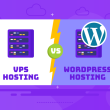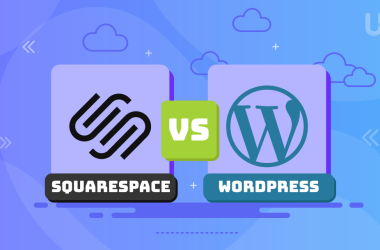When you run a business, you often hear that you need to build a brand, but you can’t just sit at your desk and start building a brand. How should you approach it, what should you pay attention to, and what should you remember?
People running small businesses approach brand building in two different ways.
Accidental Brand
Most people act intuitively: they start with the basics like a name, logo, or website, and everything else sort of happens along the way. There’s no big plan or specific vision. They buy a cheap VPS hosting, install WordPress, and build the brand on the fly.
But they don’t know how to go about their website and what to put on it. They check their competitors’ websites, start writing, gather photos, and usually end up with a site similar to others in the industry.
Conscious Brand
The second approach is the opposite: people create a brand with a precise plan. They know that a strategy and a plan for future actions are needed and believe it’s not worth being too spontaneous and relying on the chance to achieve good results.
They plan extensively and thoroughly, but when they start to act, they know what and how to do it. The cost is a later start, but the benefits are tangible. They conduct market analysis, create marketing strategies, choose the best VPS hosting with NVMe SSD drives, the most suitable CMS system, themes, and plugins.
They know what they want to say through their website and to whom, so they also know what should be on it. However, they usually have it much later than others.
A Good Mix
You can combine these two approaches. It’s not worth relying solely on spontaneity, but you can also overdo the planning. Good results come from finding a middle ground between these two extremes.
In business, you might come across the concept of “Proof of Concept.” It involves verifying a new project or idea before fully committing to it. In short, you need to find evidence that your concept makes sense.
If you want to create a new product, you must test whether you can make it in the form you envision. It involves conducting simple experiments, creating prototypes, or running tests to determine if what you have in mind is feasible or even necessary.
Brand as a Hypothesis
The paper will accept anything: You can create an excellent strategy, plan everything in detail, and completely miss the mark. Even six months of planning won’t help if your brand concept doesn’t resonate with your audience. Therefore, it’s not worth overinvesting time, energy, and money in planning at the initial stages.
However, it doesn’t mean that planning is not worthwhile. You need a strategy. It’s all about its flexibility and simplicity. You require a plan, but it should be precisely the one you can swiftly put into action, validate, derive insights from, and persist in implementing. When running a small business, it’s a good idea to start with simple steps and gradually add more elements.
Create a brand idea that you can:
- Present to your audience,
- Gauge their reactions,
- Collect feedback,
- Make any necessary adjustments.
This brand idea is your hypothesis, a concept that still needs to be proven.
Hosting Must Resonate With Your Brand
Hosting that resonates with your brand helps maintain consistency, provides a better user experience, enhances security, supports growth, aids in SEO, and contributes to a positive brand image. It’s an essential aspect of your online presence that shouldn’t be overlooked when building and maintaining your brand. Choose wisely.
How to Create a Simple Brand Strategy?
You might be thinking: Alright, but how do I create such a simple and flexible brand plan? What should I include, and what should be left out? There are six fundamental elements you must define right from the start:
Target Audience
You need to know who you’re addressing and who your audience is. However, it’s not enough to name and describe this group. You also need to get to know and understand them well.
Problems Addressed by the Brand
You should be capable of providing a concise and precise response regarding how you assist your audience. What do you offer them, and which needs do you address?
Brand Differentiation
You need to know how to grab attention. How will you make your audience notice you, stop by and want to listen?
Even if someone pays attention to you, it doesn’t necessarily mean they trust you. You need a plan for building authority in the eyes of your audience. A good idea is to purchase secure DDoS Protected VPS Hosting, but it is just a start. Think also how do you make someone believe that you can help them.
What Style Does the Brand Have?
You can talk about yourself in various ways. Every brand has its character, personality, and style. You need to plan what kind of message you want to create.
What’s the Brand’s Presentation?
It’s only towards the end that you should consider translating this into a more tangible form. You have to dress your ideas in graphics, language, and texts. It’s an important element, but one of many and not the one to start with.
When you answer all six questions above, you may still not see the results you expect. The answer to each of these questions is a hypothesis, an assumption you make. And it doesn’t have to be true or the most optimal one.
Building a Brand in a Small Business: How to Start with Instagram as an Example
The beginnings of Instagram were entirely different, too.
Instagram was created as a geolocation app. The creators thought they were meeting the need to tag the places users visited. It turned out that the most compelling feature for users was taking photos. The authors noticed this, redesigned the interface to fit these needs, and a few months later, their product was worth hundreds of millions of dollars.
It’s similar to your brand. You might think you know what needs your product fulfills, but the customer might see it entirely differently. All of the questions above work on the same principle. Your choice of target audience, your idea for differentiation, building authority, brand presentation, etc., are just hypotheses that need to be proven.
It may happen that you assume your customers will mainly come from North America and you’ll buy a VPS in the USA, while it turns out that the majority of inquiries come from Asia. You should develop a straightforward and adaptable plan, followed by testing and refining it.
Conclusion
Building a brand for a small business involves finding the right balance between spontaneity and planning. It’s crucial to recognize that your brand concept is a hypothesis that needs validation. While planning is critical, it should be flexible and straightforward, allowing for quick implementation, feedback collection, and necessary adjustments.
Think about the six elements I presented in this article, but remember that your answers to these questions are hypotheses, not absolute truths. Just like Instagram’s transformation from a geolocation app to a photo-sharing platform, your brand may evolve based on how your audience perceives it.
Ultimately, the key is to create a straightforward and adaptable brand plan that can be continuously tested and improved. Building a successful brand in a small business requires patience, flexibility, and the willingness to adjust your strategy based on real-world feedback.
To gain trust of your customers you need a reliable web hosting server. Choose Secure WordPress Hosting from UltaHost. Get 24/7 support from our support team. Our powered infrastructure focuses on auto-scaling, performance, and security. Let us show you the difference! Check out our plans!
Yes, the article suggests that combining elements of both approaches can lead to good results. A balanced approach, combining spontaneity and planning, often yields the best outcomes.
There are two main approaches: the Accidental Brand approach and the Conscious Brand approach. The first consists in acting without a plan, and the second one requires a comprehensive planning before starting to create a brand.
The Accidental Brand approach involves intuitive actions, where businesses start with basic elements like a name, logo, or website without a specific plan. In contrast, the Conscious Brand approach emphasizes careful planning, including market analysis, strategy development, and selecting the right tools and resources.
Hosting that resonates with your brand helps maintain consistency, enhances user experience, improves security, supports growth, aids in SEO, and contributes to a positive brand image. It is a crucial aspect of your online presence that should not be overlooked when building and maintaining your brand.












